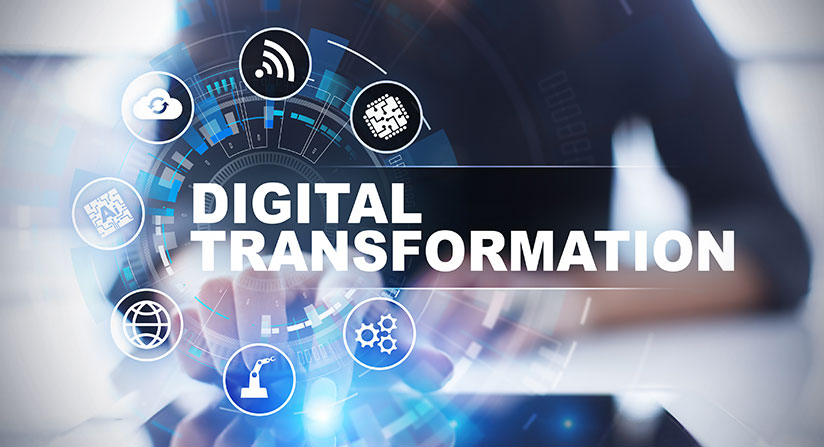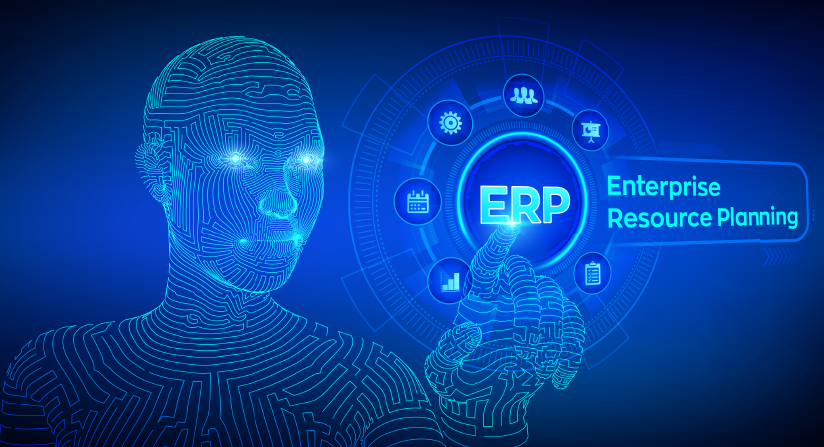Digital transformation is the driving force of modern businesses.
It encourages paperless transactions, informed decisions, and real-time information. Technologies such as Blockchain, Internet of Things, Artificial Intelligence, Machine Learning, Cloud, etc. are all contributing to the digital transformation process. These are the services that enable Industry 4.0 and encourage real-time, error-free, and streamlined work.
Transformative technologies are drastically changing the way businesses interact, innovate, and gain valuable insights. They give organizations the agility to sustain and embrace state-of-the-art technologies which can drive innovation.
Cloud is one of the most important technologies that drive the digital transformation process. Let’s see how!
Cloud has been supporting the digital environment since 2006 and even before. Gradually, it has advanced to offering ubiquitous access to the shared network, storage, servers, and apps with minimal management efforts.
In the manufacturing sector, businesses face many challenges – accurately predicting and responding to demand, increasing profit margins, delivering goods on time, and more. A cloud ERP seamlessly manages critical areas such as production, quality control, finance, sales, purchasing, the warehouse, etc. while reducing the total cost of ownership and ongoing IT costs.
There are many reasons why manufacturers are moving to cloud ERP. One of the reasons is that cloud frees 60% of IT staff so that they can focus on more strategic tasks instead of monotonous day-to-day operations.
With the cloud, omnipresent data is assured. That means, you can work from anywhere, anytime, and access your data in real-time, irrespective of the location. Cloud-based ERP enables integrations with new technologies, as one of the pillars of digital transformation that drives growth and success.
ERP and Cloud
Enterprise Resource Planning software integrates different business applications to offer functionality, analytics, and collaboration tools. In the past, businesses have invested in an on-premise ERP deployment plan which required extensive hardware and well-versed IT staff to implement and maintain the systems. But now, as the technology has evolved, businesses are adopting the cloud at a rapid pace.
As per research conducted by Forbes, the percentage of companies migrating to cloud ERP has increased from 19% to 57% in 2016. Cloud ERP eliminates the cost of hiring IT personnel for installing and maintaining the servers physically in the offices.
It offers your employees mobile access so they can productively work from anywhere and at any time. It creates a collaborative workplace to connect with other employees with ease.
The Contribution of Cloud ERP in Digital Transformation
Cloud can take your ERP software to the next level by allowing managers and C-Level executives to view business operations cohesively and instantaneously. It simplifies the flow between departments without increasing your upfront investment and costs.
Data collection and exchanging information was once considered a time-consuming task. The evolution of cloud ERP has made it easy for organizations.
Cloud enables digital transformation. It unifies your business data and transactions into one system and encourages remote working. The combination of a cloud platform and ERP software enhances business productivity. It lets you focus on core functionalities and reduce overall IT and investment costs.
The world is moving on a digital path. Cutting-edge software and technologies are the driving force of digital transformation. With the cloud, you get accelerated growth, better decision making, greater interoperability, employee efficiency, and a collaborative work environment. Cloud offers your company the scale and speed required for its growth.
Cloud Is the Future
Every day, there are new technology innovations. IoT, Blockchain, augmented reality, machine learning, artificial intelligence, and others are innovations that people are talking about worldwide. However, without a cloud platform, these technologies will not effectively work and deliver the expected outcome.
It is expected that the adoption of cloud ERP will continue to grow. It is the foundation step that supports the network of physical devices, appliances, and software.
Cloud ERP leads to the future with digital transformation because it –
- Reduces cost
Cloud is a SaaS service and is subscription-based. If you choose a cloud ERP deployment, the fixed amount you will spend every month as a subscription fee will be considerably smaller than on-premise. You also don’t need to invest in high-end machines, peripherals, and other hardware. With limited investment, businesses can evolve and increase their bottom line.
- Minimizes responsibilities
With on-premise or traditional hosting of ERP, there are many responsibilities, including the maintenance of systems, data transfer, etc. The cloud frees you from these.
- Improves reach
Digital transformation is all about making your business available to potential customers any time, anywhere. Cloud ERP provides you with the option of accessing data and important documents at any location and at any time. Whether you are on a business tour or traveling for a meeting, you can freely collaborate with your colleagues while working from another part of the world.
- Has a quicker implementation
Simple, easy-to-use solutions are easy to implement and learn. Cloud ERP can be quickly implemented with no downtime.
Conclusion –
Cloud is the future of digital transformation. It is offering and will continue to offer, a best-of-breed software infrastructure that includes data integration, network segmentation, and authenticity across multiple clouds.
Manufacturers prefer a cloud ERP solution because it lowers their cost for purchasing, installing, and implementing the software for their shop floor. It removes complexities and ensures that customers are satisfied with easier and quicker cloud ERP implementation.
If you want to learn more about cloud ERP or have any questions regarding manufacturing ERP or digital transformation, please feel free to reach us at Contact Us.
Follow Us










